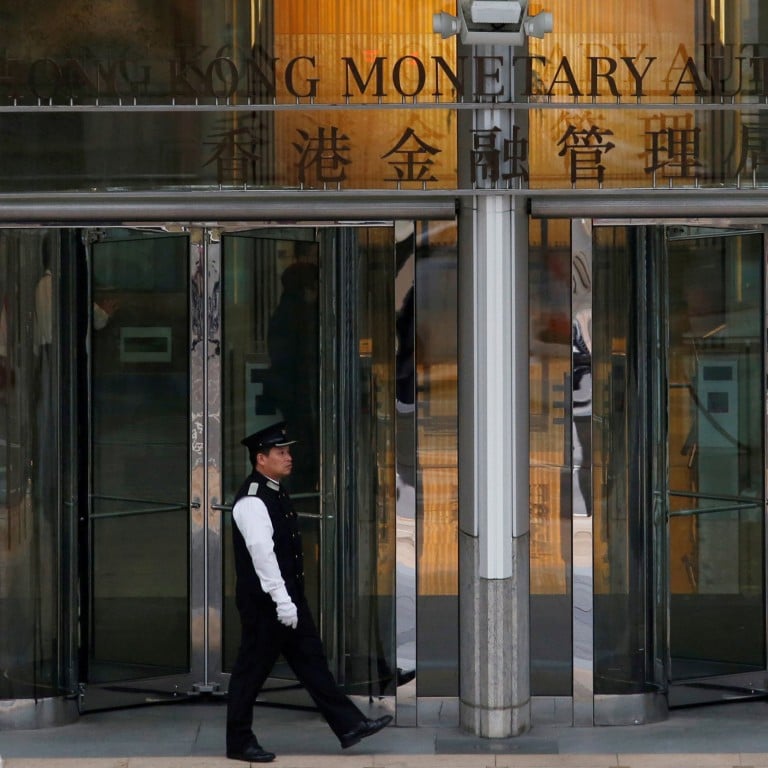Hong Kong Intervenes In FX Market To Defend Peg Against US Dollar

Table of Contents
The Hong Kong Dollar's Peg to the US Dollar
Understanding the Linked Exchange Rate System
Hong Kong operates under a linked exchange rate system, where the Hong Kong dollar (HKD) is pegged to the US dollar (USD) within a narrow band. This system, implemented in 1983, aims to provide exchange rate stability and predictability. The HKMA maintains the peg by intervening in the FX market, buying or selling HKD to keep the exchange rate within the specified band (7.75-7.85 HKD per USD).
- Definition of the linked exchange rate system: A system where a currency's value is fixed against another currency, in this case, the USD. The HKMA actively manages this peg through FX market interventions.
- History of the peg and its effectiveness: The peg has been largely successful in providing stability for over four decades, fostering economic growth and attracting foreign investment. However, it has faced challenges during periods of global economic uncertainty.
- Advantages: The peg offers significant advantages, including reduced exchange rate risk for businesses engaged in international trade, promoting stability and predictability in the economy, facilitating investment decisions, and fostering confidence in the Hong Kong dollar.
- Disadvantages: Maintaining the peg restricts the HKMA's ability to use monetary policy independently to address domestic economic conditions. It also makes Hong Kong vulnerable to external economic shocks that affect the USD, and it can lead to pressure on the peg during periods of significant capital flows.
Reasons Behind the Recent FX Intervention
External Pressures and Market Speculation
The recent intervention was likely triggered by a confluence of factors that put pressure on the Hong Kong dollar.
- Impact of US interest rate hikes: The Federal Reserve's aggressive interest rate hikes to combat inflation made US dollar-denominated assets more attractive, potentially leading to capital outflows from Hong Kong and downward pressure on the HKD.
- Influence of global economic slowdown: Global economic uncertainty and a potential slowdown have also contributed to capital flight and increased demand for safe-haven currencies like the USD.
- Role of speculative trading on the HKD: Speculative attacks targeting the HKD, betting on a weakening of the currency, can also exacerbate pressure on the peg, requiring intervention to maintain its stability.
- Potential impact of geopolitical events: Global geopolitical instability and uncertainty can also lead to capital outflows and pressure on emerging market currencies, including the HKD.
The HKMA's Response and Intervention Strategies
Details of the Intervention
To defend the peg, the HKMA intervened in the FX market by buying Hong Kong dollars. This action increased demand for the HKD, helping to stabilize its exchange rate against the USD.
- Scale of the intervention: The exact scale of the intervention is often not publicly disclosed by the HKMA to avoid impacting market sentiment and fueling further speculation. However, the HKMA usually maintains substantial foreign currency reserves to support the peg during times of pressure.
- Methods used by the HKMA: The HKMA primarily utilizes buying HKD in the open market, effectively supporting the value of the Hong Kong dollar. They might also use other tools, depending on the situation.
- Impact on the HKD/USD exchange rate: The intervention is intended to prevent the HKD from weakening beyond the lower bound of the linked exchange rate band (7.75 HKD per USD).
- Transparency and communication strategies of the HKMA: While the specific details of interventions are usually kept confidential, the HKMA generally communicates its commitment to the linked exchange rate system and its readiness to intervene as necessary.
Economic Implications and Future Outlook
Short-term and Long-term Effects
The HKMA's intervention to defend the peg has several short-term and long-term implications for Hong Kong's economy.
- Potential impact on interest rates and monetary policy: Intervention can affect Hong Kong's interest rates, either directly or indirectly through market expectations. The HKMA's actions often influence the overall interest rate environment.
- Effects on inflation and consumer prices: Changes in exchange rates can directly impact inflation through the prices of imported goods. A stable HKD usually helps to control inflation.
- Implications for foreign investment and capital flows: The stability provided by the peg attracts foreign investment, but interventions can sometimes impact investor confidence depending on the circumstances.
- Long-term sustainability of the peg: The long-term sustainability of the peg depends on various factors, including global economic conditions, the health of the Hong Kong economy, and the HKMA's ability to manage capital flows and defend the currency.
Conclusion
Hong Kong's recent FX market intervention underscores the ongoing commitment to its currency peg against the US dollar. The HKMA's actions, driven by external pressures and market speculation, highlight the challenges of maintaining a fixed exchange rate system in a volatile global environment. The intervention's short-term and long-term economic consequences will need to be carefully monitored. The stability of the Hong Kong dollar remains paramount, influencing investor confidence, trade, and Hong Kong's overall economic health. Understanding Hong Kong's currency peg and its implications for the territory's economy is crucial. Stay informed about future developments concerning Hong Kong's FX market and the ongoing defense of its currency peg against the US dollar. Further research into the intricacies of Hong Kong's monetary policy and its response to global economic fluctuations is essential for anyone interested in the stability and future of the Hong Kong dollar.

Featured Posts
-
 Onde Assistir Corinthians X Internacional Horario E Escalacoes Do Jogo
May 04, 2025
Onde Assistir Corinthians X Internacional Horario E Escalacoes Do Jogo
May 04, 2025 -
 Ufc 314 Ppv Analyzing The Volkanovski Vs Lopes Main Event And Undercard
May 04, 2025
Ufc 314 Ppv Analyzing The Volkanovski Vs Lopes Main Event And Undercard
May 04, 2025 -
 Post Ko Win Canelos Former Challenger Seeks Rematch
May 04, 2025
Post Ko Win Canelos Former Challenger Seeks Rematch
May 04, 2025 -
 Parker Vs Bakole Interim Wbo Belt At Stake
May 04, 2025
Parker Vs Bakole Interim Wbo Belt At Stake
May 04, 2025 -
 Canadian Mortgage Preferences The 10 Year Terms Low Appeal
May 04, 2025
Canadian Mortgage Preferences The 10 Year Terms Low Appeal
May 04, 2025
